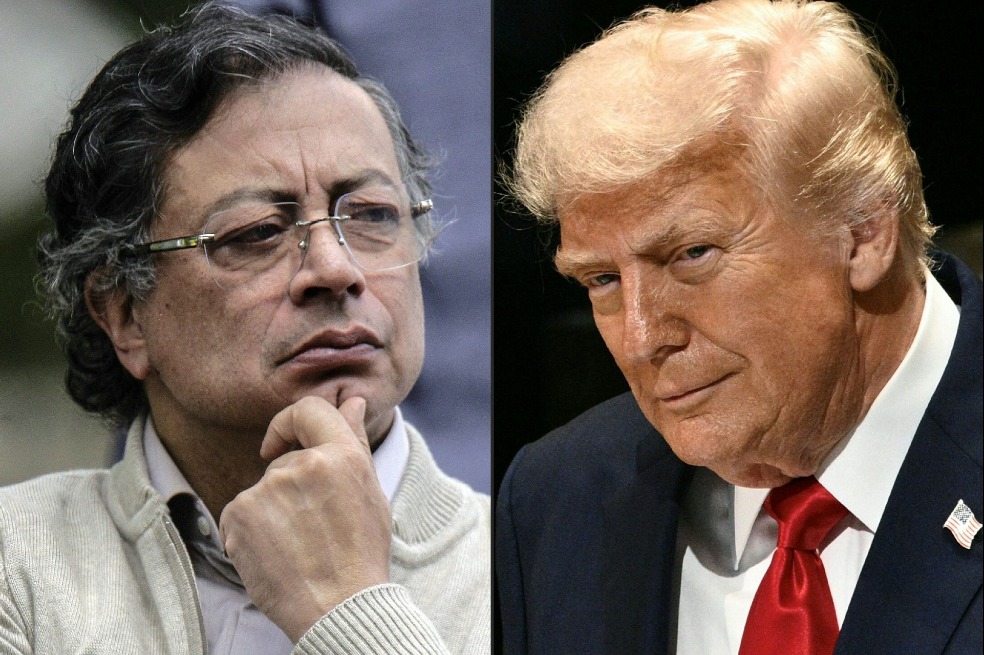Global STEM competition focuses on the fight against plastic pollution

Organizers of a major international student technology competition are looking forward to hearing the ideas of the next generation of scientists after the British International Education Association, or BIEA, launched its 2020 STEM Youth Innovation competition.
The competition to encourage young people's interest in science, technology, engineering and mathematics-together known as STEM-comes off the back of a hugely successful 2019 staging, which saw one million students worldwide register interest and 33,000 schools, including many from China, take part, with an international prize-giving ceremony at London's Royal Air Force Museum.
Last year teams from Macao and Beijing reached the final stage, with major prizes being won by students from Hangzhou Shanghai World Foreign Language Primary School and No. 2 Secondary School Attached to East China Normal University.
"I always hoped we'd capture people's imagination but to have such numbers and such high-quality entries from all around the world was astounding," David Hanson, STEM chairman at the BIEA, told China Daily.
"This year I think it'll be bigger than before, particularly in terms of China because I've been to Beijing and met the Soong Ching Ling Foundation and they'll help manage regional events nationwide."
The theme of 2019's competition was using drone technology in wildlife conservation projects. In 2020, the focus is on the fight against plastic pollution.
"Our themes are never accidental,"Hanson said. "In our first year, there had been a few natural disasters, so the theme was how to use technology to help people in crisis regions. Last year it was endangered species, which really caught the zeitgeist, and this year it's plastics, because everyone can see how big that problem is.
"The themes reflect the passions of young people, and we're saying don't be overwhelmed by the state of the world, we have the technology, you might find the solution we've not found yet."
The competition is divided into three categories, covering ages from nine to 17, with an overall first prize of 5,000 pounds ($6500), won last year by United World College in Mostar, Bosnia and Herzegovina. Due to popular demand, the 2020 competition will have an additional category for university undergraduates.
The prominence of plastic pollution is partly down to television programs such as Blue Planet II and the efforts of activists such as Greta Thunberg, but Hanson said the competition aimed to encourage creativity rather than focus on negatives.
"Demonization of plastic is not the answer," he explained. "Plastic can do things no other material can do, so we can't get rid of it altogether. We want people to think about how to use it smarter, better, and less intrusively."
Heidi Burdett is a marine biologist from Heriot-Watt University in Scotland, whose work deals directly with the issues of ocean pollution and discarded plastics.
She told China Daily she was thrilled by the focus of this year's competition because it had so obviously caught the imagination of the younger generation.
"Engaging that young audience is really important and I'm astonished by how much they already know," she said. "I think they're far more informed than some of the older generation and know more than we give them credit for."
The so-called Blue Planet effect has seen China face up to and take significant steps to deal with its own plastic problem, something Burdett said should encourage all other nations.
"Someone needs to lead this, so if a huge country like China can do so and take this on, other countries will follow," she said.
"What's been great to see over the past few years is how the momentum of tackling the problem has built up. Things like charges for plastic bags and a discount if you bring your own coffee cup are recent innovations but they do work. It's almost expected now that you get a discount for bringing your own cup, and that shows how easy it is for these things to enter the mainstream."
She also paid tribute to the impact Thunberg had had on her own generation-and as a consequence, the one above.
"Greta has single-handedly brought it to the world's attention and ensured no-one can turn a blind eye any more, and she's gained the support of her peers to a level that puts older people to shame for how we ignored the problem," she said."This competition is great, because we're engaging the next generation who will be the scientists, technologists and teachers of tomorrow in tackling the issue."
Entry for the competition's regional heats close on March 31, with the international stage of the competition running from April to June, and the grand final in the United Kingdom in the summer.
"Young people believe they can make the world a better place so we try to capture that," said Hanson."There are other STEM competitions around the world that celebrate technology for its own sake, but our mission is to make tech a force for good. In the past we asked them to think about helping people in crisis, and animals in decline, and this time it's about clearing up the mess we've made. That's what really captures their imagination."
































